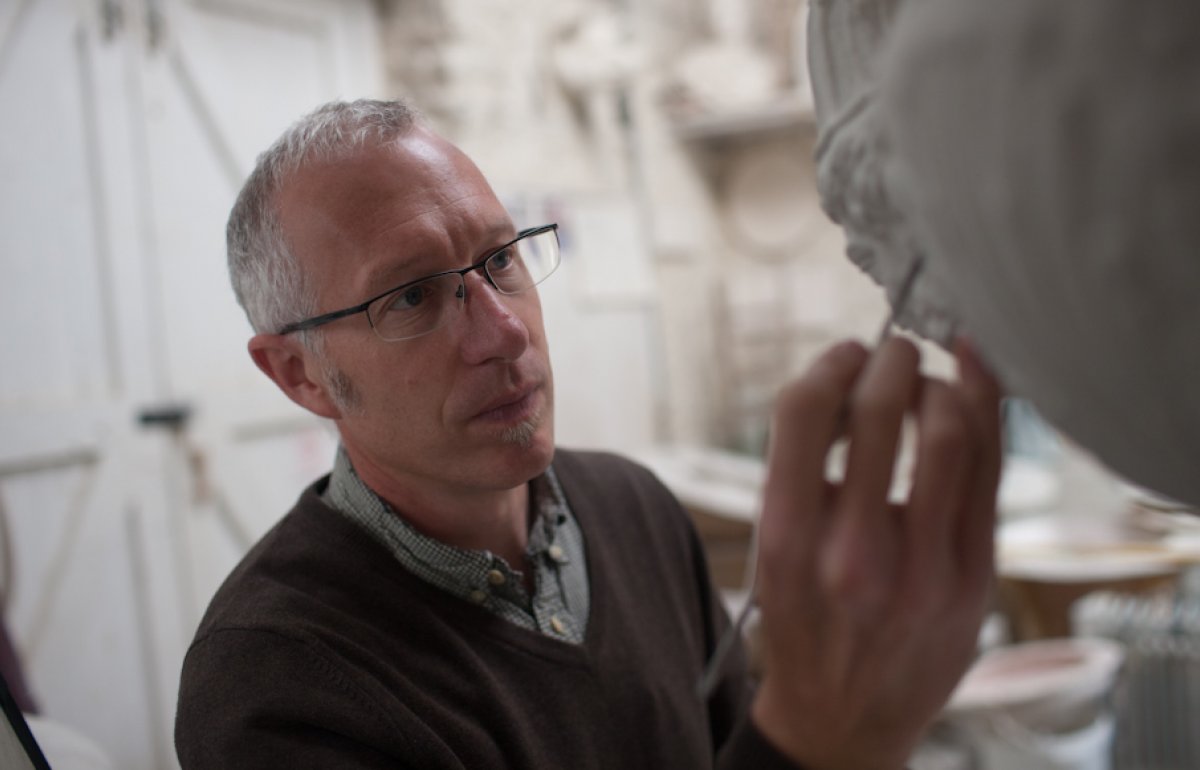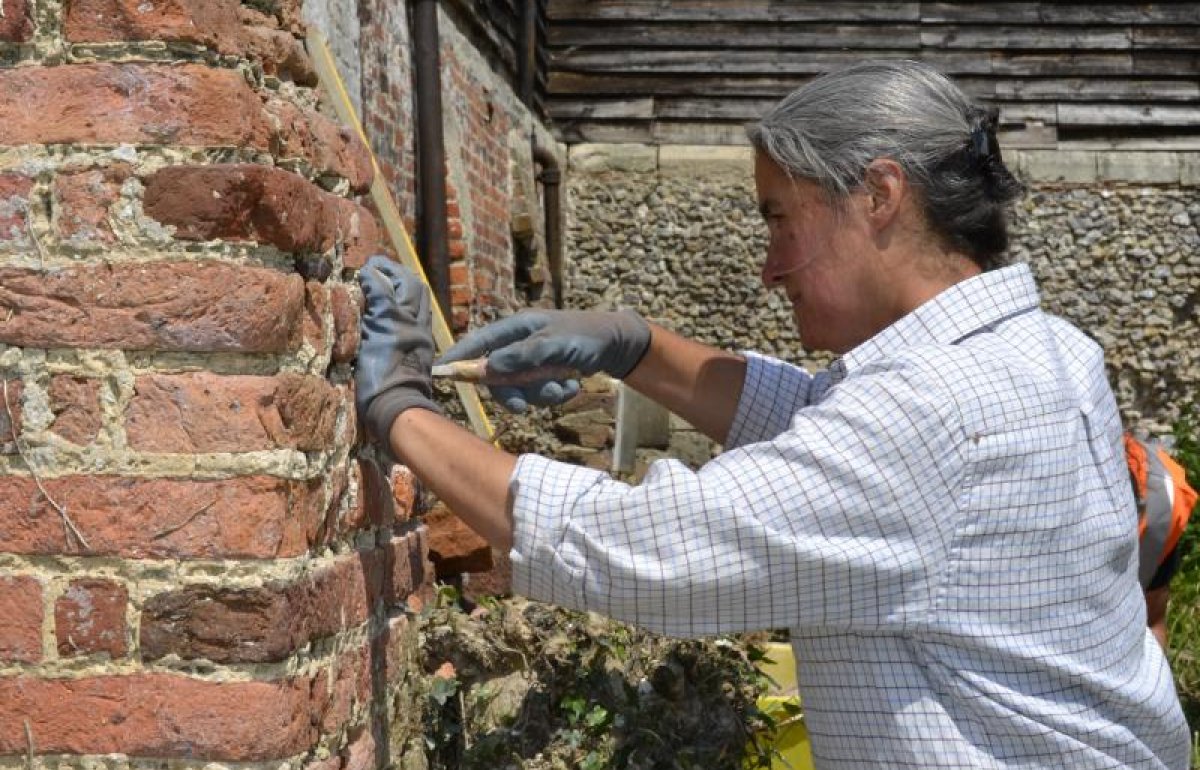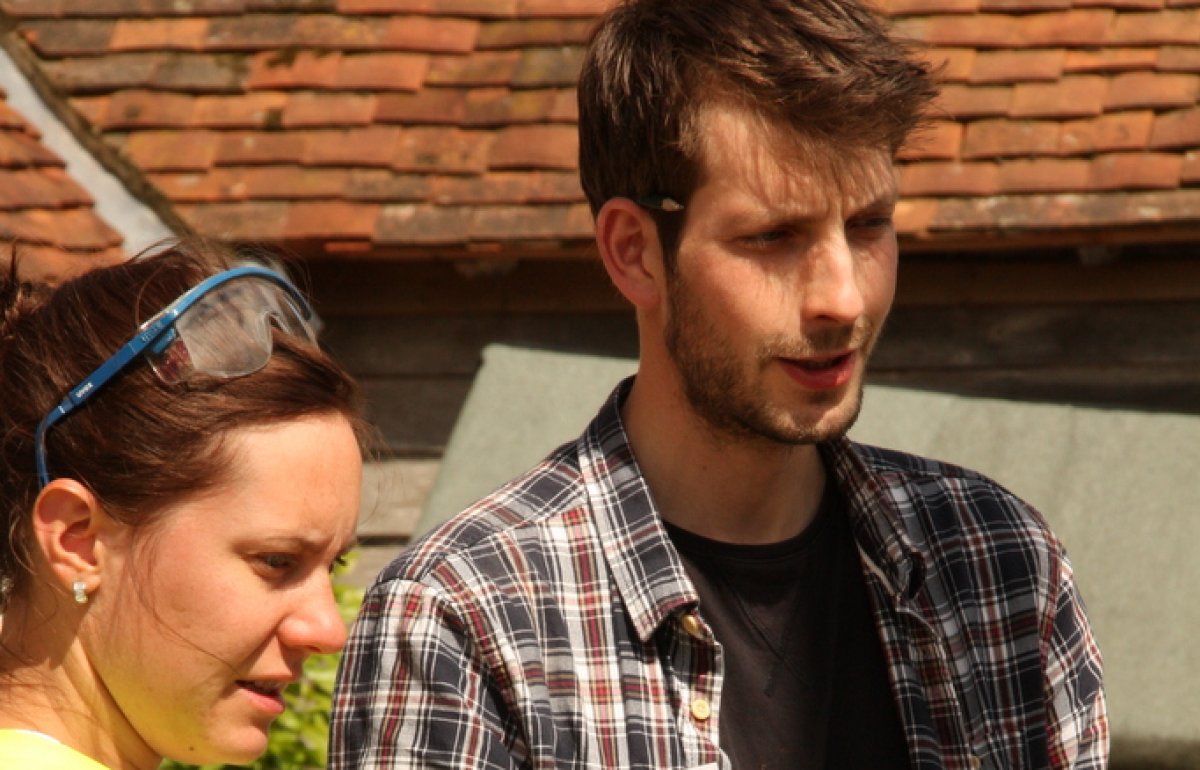Ben, a carpenter/joiner and SPAB Fellow, writes about the most useful non-craft related qualifications for a self-employed craftsperson, his volunteering work for the SPAB, and the reasons he became interested in building conservation.
Crafts
Typically a career as a heritage craftsperson starts with training in a particular skill, such as bricklaying, plastering or stonemasonry. This training might be college based (such as a diploma) or workplace based (such as an apprenticeship or NVQ). Apprenticeships, NVQs and college courses specialising in traditional construction skills are available, but the majority of construction training schemes are aimed at modern construction.
If you have already completed training that is specific to historic buildings, you can develop your career by continuing to work with businesses that concentrate on heritage work, or you may consider setting up your own business. There is a shortage of talented craftspeople in many areas of the UK, so further training or job opportunities may be available. However, the building trade can depend on the economy, so demand for your skill may fluctuate over time. You can also continue to build your skills by working with other craftspeople or attending short courses. Membership of the relevant guild or livery company may also be beneficial, as may a Heritage CSCS card.
If you have received more general training and wish to move into the heritage sector, you will need to gain knowledge and experience of traditional craft skills. Short courses are available from a range of organisations, including the SPAB. You may also be able to learn on the job by working with experienced heritage craftspeople, and work towards a Level 3 NVQ Diploma in Heritage Skills (Construction). You may also consider enrolling on a Specialist Upskilling Programme, which is aimed at craftspeople who want to turn their existing skills and knowledge into a qualification.
For individuals who are passionate about repairing old buildings and promoting traditional craft skills, the SPAB annual Fellowship programme is an excellent way to develop your career.

Tom, a stonemason, writes about what sparked his interest in building repair, his first paid job and the advice he'd give to someone wanting to start a career in stonemasonry.

Emma Simpson, master bricklayer, writes about the most useful piece of advice she was given in her career, what led her to building conservation and what qualifications she undertook to improve her skills.

